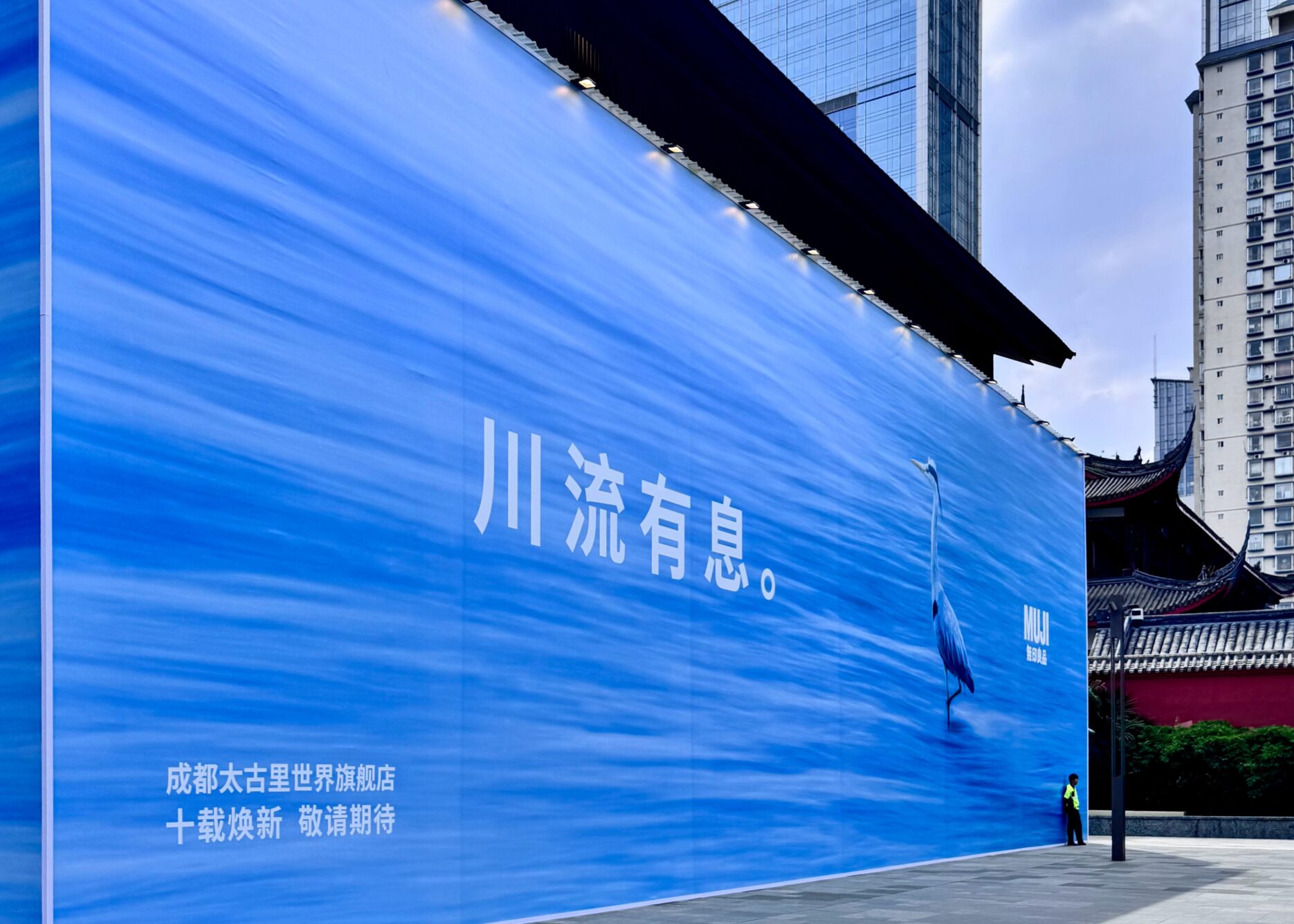Back in December 2014, MUJI opened its first global flagship store at Chengdu’s Taikoo Li. Now, ten years later, that store is temporarily closing for a full upgrade. To mark the occasion, MUJI has launched a new hoarding campaign themed “川流有息” (chuan liu you xi)—a four-character phrase that captures its take on Chengdu’s distinctive city spirit.
The campaign uses three concept posters as part of its hoarding, each offering a glimpse into everyday life in Chengdu.
The first poster shows a heron, locally nicknamed the “foot-washing bird,” standing still in a flowing stream. Calm on the surface but sharp and efficient in action, the bird reflects Chengdu’s relaxed yet purposeful pace of life.
The second poster explores the harmony between people and their surroundings. A person remains still as the world moves around them—an image that speaks to the city’s peaceful rhythm and close ties to nature.
The third poster shows a steaming bowl of traditional covered-bowl tea. In Chengdu, tea and teahouses are more than daily rituals—they symbolize a way of life rooted in contentment and simple joy.
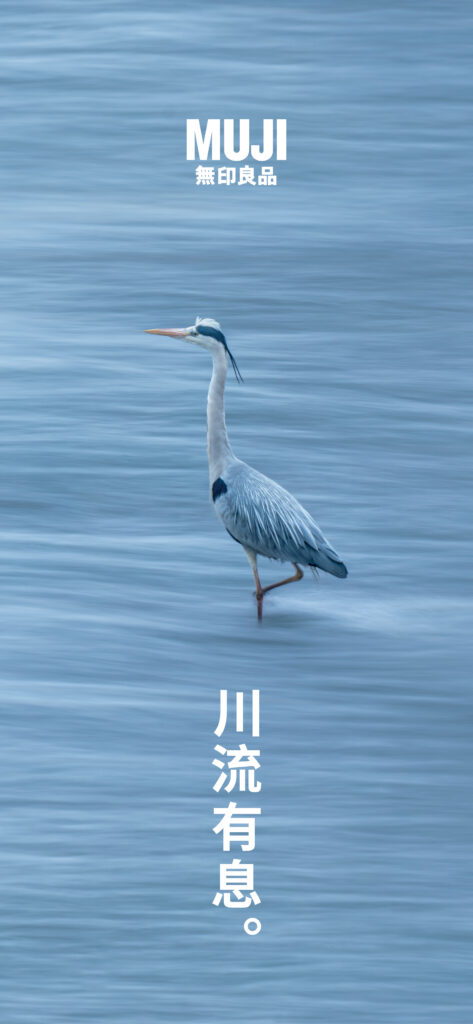
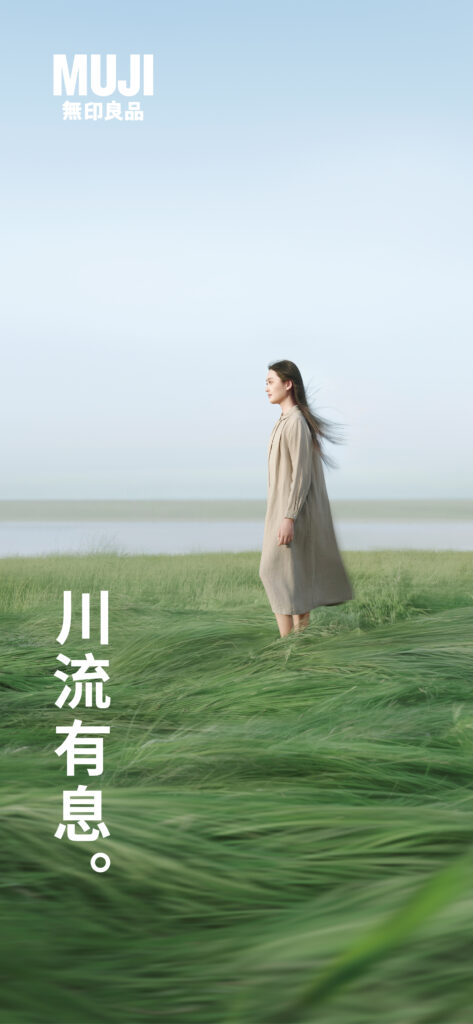
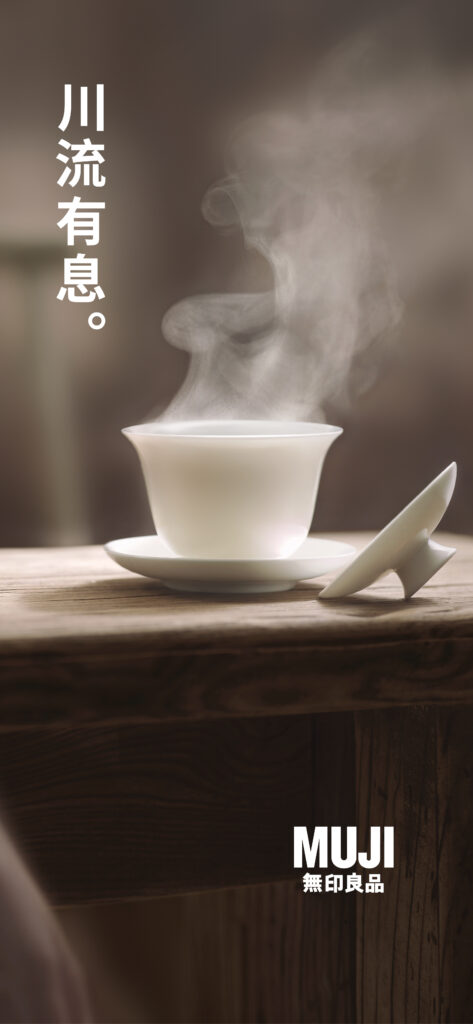
At the heart of the campaign is the phrase “川流有息,” which literally translates to “the flowing stream takes a break.” Chengdu, a city shaped by its rivers, draws much of its culture and identity from water. The expression draws from the well-known idiom “川流不息” (chuan liu bu xi), meaning “an endless flow,” often used to describe vitality and momentum.
By swapping “no rest” (不息) with “with rest” (有息), MUJI suggests that in a fast-moving world, it’s just as important to slow down. The phrase mirrors the store’s temporary pause—and points to a thoughtful reset before a fresh start. It also aligns with MUJI’s brand values—minimalism with meaning.
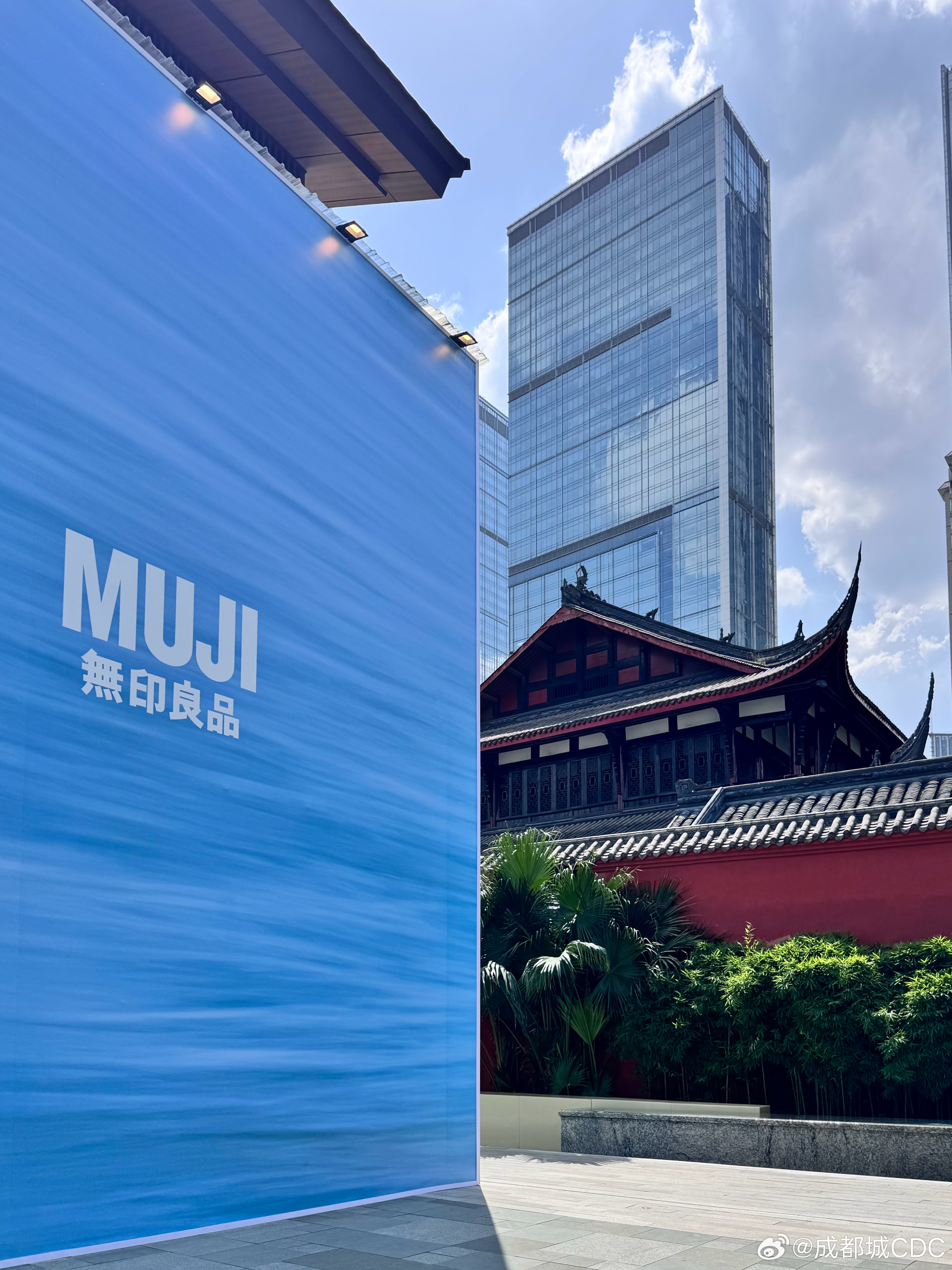
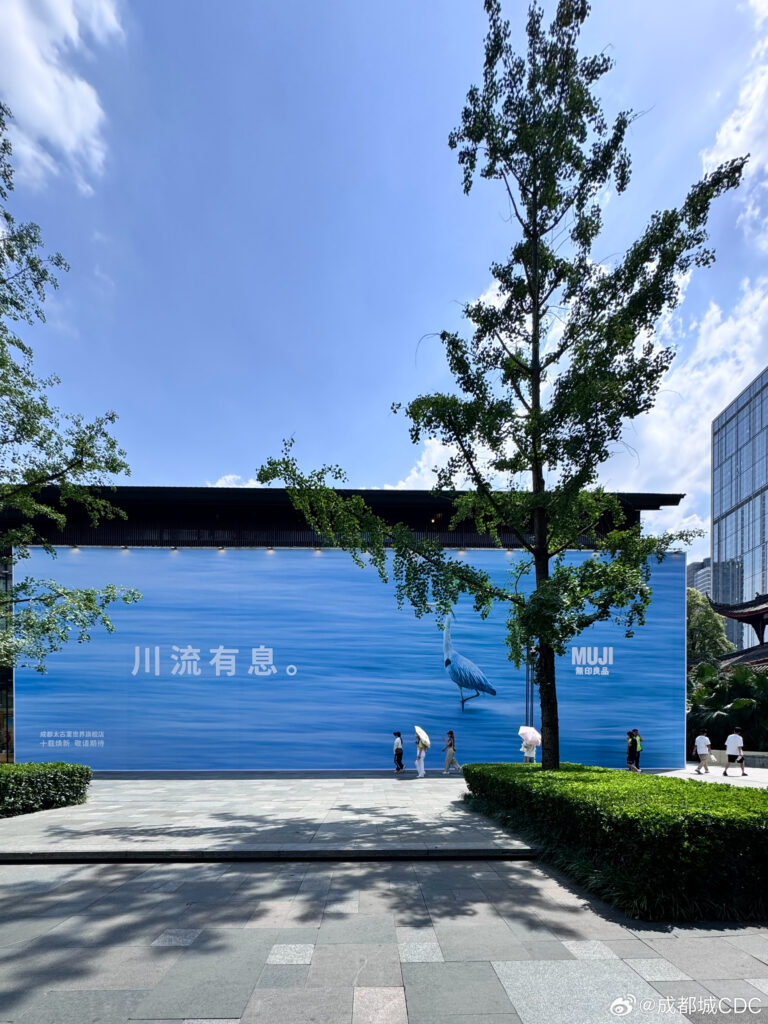
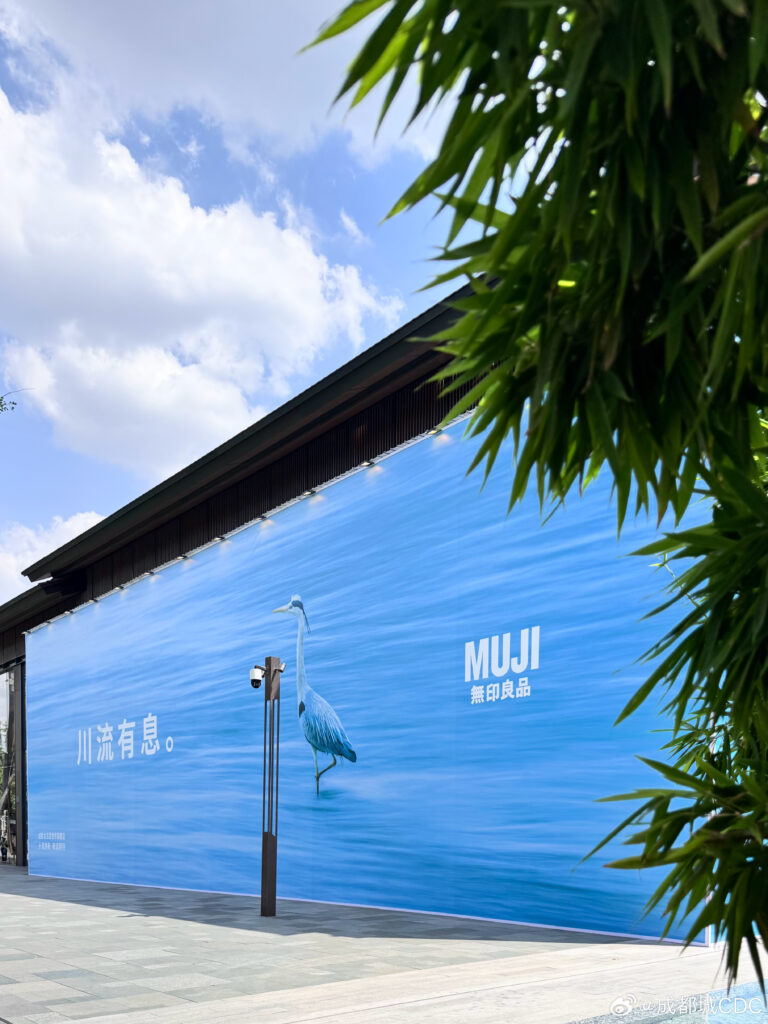
What was once just a construction barrier is now a creative statement. With just four characters, MUJI turns a renovation site into a meaningful brand moment, showing how even the most practical space can be used to tell a story. It’s a smart use of outdoor media, and a quiet reminder that sometimes, less really is more.




